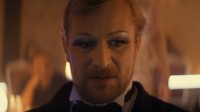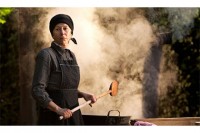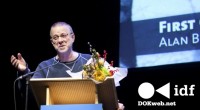Slovak Audiovisual Fund (www.avf.sk) announced the projects supported at the fourth round of 2012. The decision was approved by Martin Šmatlák, the Director of the Slovak Audiovisual Fund on 19 November 2012. See the full list of supported projects.
PRAGUE: The simultaneous theatrical and VOD release of Jan Hrebejk's Waste, City and Death, an adaptation of a Rainer Werner Fassbinder script and stage play in Prague has brought in limited audiences over the first two weekends.
PRAGUE: Leading Czech commercial broadcaster TV Nova (tv.nova.cz) has asked the state for permission to launch a new channel, which it would call Smichov, described as offering content of a "fun character."
TBILISI: The 13th edition of the Georgia's Tbilisi International Film Festival (www.tbilisifilmfestival.ge) kicked off last night (3 December 2012) with a screening of Istvan Szabo’s The Door, with the Oscar winning Hungarian director in attendance.
Prague, December 3, 2012 The animation film Alois Nebeldirectedby first time director Tomas Lunak became the winnerof the award for the best animation film of 2012 at the European Film Awards ceremony, taking place 1 December at Malta.
The more than 2,700 members of the European Film Academy - filmmakers from across Europe - have voted for this year’s European Film Awards. At the awards ceremony in Malta the following awards were presented:
The acclaimed Slovakian documentary film director Peter Kerekes recently wrapped up shooting his latest film Velvet Terrorist in Croatia. Velvet Terrorist is a Slovakian-Czech-Croatian co-production with Siniša Juričić (producer of award-winning Sofia's Last Ambulance) and Filip Remunda (co-author of Czech Dream) as co-producers.
A look back at the 25th edition of IDFA and the CEE films presented this year at Europe's most significant documentary festival. Click HERE to read the full story on DokWeb.
PRAGUE: The Karlovy Vary festival's former artistic director was feted this week when the French Ambassador to the Czech Republic, Pierre Lévy, conferred upon Eva Zaoralova the second grade of the Order of Arts and Letters.

























